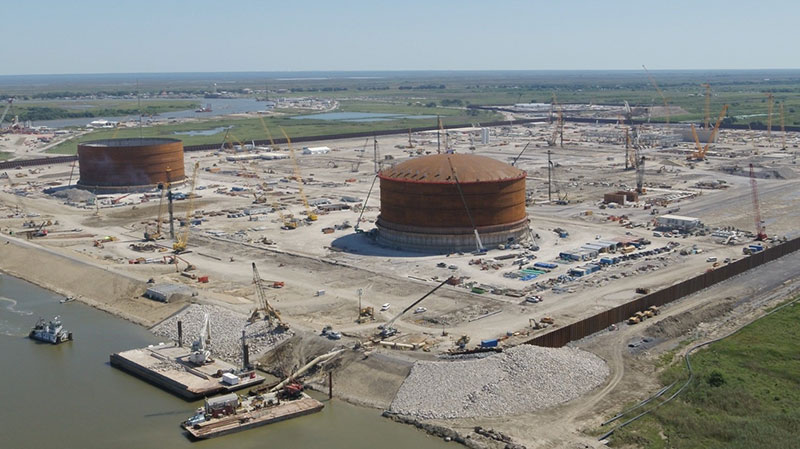White House Pauses Decision on Louisiana LNG Export Terminal
(Reuters) — The Biden administration is delaying a decision on a Louisiana liquefied natural gas (LNG) export project that would be the United States' largest, but which has raised the ire of environmentalists, the New York Times reported on Wednesday.
With an export capacity of around 20 million metric tonnes per year, Venture Global LNG's Calcasieu Pass 2 (CP2) project would be twice the size of the company's present CP plant. If built, it would make Venture Global one of the largest LNG companies in the world.
RELATED: Sources: Biden to Announce Delay on New LNG Export Terminal Approvals
The White House is directing the Department of Energy (DOE), which decides whether LNG exports are in the "public interest" to expand a review of LNG export projects to include more climate change criteria, the Times said, citing three unnamed sources familiar with the matter. The review could lead to delays of another 16 proposed LNG export projects, it said.
Press officials at the White House and DOE did not have an immediate comment on the report.
A delay of a decision on CP2 until after the Nov. 5 U.S. presidential election could spare the White House from criticism from environmentalists, who form an important part of President Joe Biden's base. Climate activists say new LNG projects lock in global reliance on fossil fuels for decades, and lead to emissions not just from burning gas but also from leaks of the powerful greenhouse gas methane.
Venture Global said the report was worrying if true.
“Such an action would shock the global energy market, having the impact of an economic sanction, and send a devastating signal to our allies that they can no longer rely on the United States," said Shaylyn Hynes, a company spokesperson.
European countries have sharply increased their LNG purchases from the United States since Russia's invasion of Ukraine, as part of an effort to diversify its energy sources.
Venture Global and other LNG companies have also argued the expansion of U.S. LNG exports can help reduce overall greenhouse gas emissions by displacing coal in Asia and other parts of the world.
CP2 needs approval from the Federal Energy Regulatory Commission (FERC), a panel of three energy regulators that has traditionally approved most LNG projects. It also needs approval from the DOE in order to ship to countries with which the U.S. does not have a free trade agreement, including some of the largest markets in the European Union and Asia.
Any moratorium on LNG export approvals could delay investment decisions by companies proposing new facilities, said Alex Munton, director of global gas and LNG research at consulting firm Rapidan Energy Group.
"There are no pre-FID (final investment decision) projects that have a clear regulatory path forward and so without that path, it will delay FIDs until next year at earliest," Munton told Reuters on Wednesday.
Environmentalists cheered the report.
"Putting a stop to expanded gas exports is one of the most important moves President Biden could make on addressing the climate crisis," said Ben Jealous, head of the Sierra Club.
Commonwealth LNG, which has been waiting 14 months after receiving its environmental permit, declined to comment. It has hoped to start construction on its Cameron, Louisiana, project late this year with preliminary deals for exports of 5 million metric tons a year.
Related News
Related News

- Keystone Oil Pipeline Resumes Operations After Temporary Shutdown
- Freeport LNG Plant Runs Near Zero Consumption for Fifth Day
- Biden Administration Buys Oil for Emergency Reserve Above Target Price
- Mexico Seizes Air Liquide's Hydrogen Plant at Pemex Refinery
- Enbridge to Invest $500 Million in Pipeline Assets, Including Expansion of 850-Mile Gray Oak Pipeline





Comments